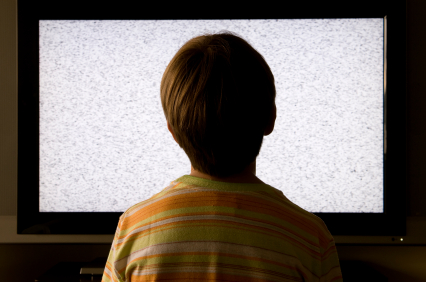Signal Bleed and Other Tricks
© 2009 Teresa Cook

When our teenaged son Brandon admitted he was addicted to pornography, my husband and I were shocked to learn
he had been watching pornographic cable channels on our living room television. Since we only subscribed to
basic cable, carefully avoiding movie channels such as HBO and Cinemax, we couldn't understand how x-rated
material had violated our home.
The next day, we called the cable company to insist they completely block the partially-scrambled channels
Brandon had stumbled upon. It took five phone calls over a two-week period to get a technician to our home.
Why? I wondered. Don't they care children are being exposed to pornography?
A few months later, I read an article about signal bleed, a term used in the cable industry to mean "those
visual images or sounds that can be seen or heard despite some form of scrambling or blocking." Prohibited
by the 1996 Communications Decency Act (CDA), signal bleed became permissible again in 1999 when the U. S.
Supreme Court struck down parts of the CDA as unconstitutional. A cable company could once more, according
to the article, "intentionally signal bleed pornography as part of its effort to attract new subscribers."1
Now I understood the purpose of the peep shows our son saw and the company's foot-dragging when we asked them
to block these channels.
Today the law still allows cable companies to signal bleed. Section 504 of the CDA, however, does require cable
companies to "fully scramble or block the audio and the video of a programming service that a customer does not
subscribe to at no charge to the subscriber." The catch is that you, the subscriber, must request blocking on
channels you don't want.2 So if you enjoy cable but want to protect your children, you have to:
- Check out all the channels to which you don't subscribe—which can take a while since a partially-scrambled
station alternates between a blank, fuzzy, or tilted screen and a clear picture, so you will have to watch each
station for several seconds to determine if it's completely blocked.
- Call the cable company—sometimes repeatedly—to request a filter or "trap" on channels with
offensive material.
- Verify the channels are completely filtered.
All this to rid your home of channels you never subscribed to in the first place. And if you don't like some of
the stations you receive as part of a programming package (such as MTV), you may have to pay for additional
mechanisms to block them. The government doesn't require cable operators to block objectionable stations if
they're included as part of a package deal. See
http://www.fcc.gov/cgb/consumerfacts/objectionabletv.pdf for more information. (Also see
"Plug the Holes: More Gaps.".)
Signal bleed allows cable companies to garner more customers, but it also serves pornographers' objective of
exposing more children to pornography. Their goal: to cultivate a new generation of addicts who will pour millions
of dollars into the porn industry. Other approaches include:
- Disguising pornography as health magazines calculated to draw teen boys who want to improve their physiques.
- Making pornographic movies available in hotel rooms (see "Is Your Hotel Spotless?").
- Masking pornographic web sites as child-friendly pages geared toward topics children search for, such as pets,
popular cartoon characters, toys, pop singers, or brand names (i.e. Disney, Barbee, etc.)
- Using "stealth sites" that mimic real web sites with slight misspellings or different endings, such as .com
instead of .gov.3
- Including samples of porn on non-pornographic web sites.4
- Printing sexually explicit pictures in clothing catalogs and teen magazines.
Pornographers continually devise new ways to hook children into looking at pornography, making our job as parents
more demanding. Take the important steps of talking with your children about porn (see
"The Porn Talk"),
filtering your computer and cable channels, and staying up to date on technology trends (subscribe to NetFamilyNews
at
http://www.netfamilynews.org/subscribe.htm). Together we
can work to stay one step ahead of the pornographers.